Admissions/Recruitment Retention & Resilience Advising in Honors? A Choose-Your-Own Adventure Through a New Model for Reaching High Need, High Achieving Students
Jill Hernandez, Texas Tech University
Kelsey Kimzey, Retention & Resilience advisor, Texas Tech University
How many hours did you wile away on “Choose Your Own Adventure” books when you were a kid? In this workshop, you’ll get to navigate your way through successes and failures of the first year of Retention & Resilience (R&R) advising at Texas Tech University, through a “Choose Your Own Adventure” exercise! We’ll collaboratively explore the best practices of R&R advising in Honors at an R1 institution, walk through challenges (including budgets, forecasting, and data collection), and anticipate future success through projected changes to the program at Texas Tech.
At public institutions facing challenging enrollment declines and decreased funding, it is imperative that Honors students persist, especially given that universities with Honors programs generally have overall higher student GPAs and better four-year graduation rates (Bowman & Culver, 2017). In non-Honors environments, best practices in advising have been shown to be one of the three contributors to student persistence and graduation rates (Karoff 2017). Some universities have utilized new advising models to anticipate and meet student need prior to student attrition, especially for students with high academic need. “Retention and Resilience” advising (R&R) is one such model, but thus far has only been utilized in nonHonors settings, typically to intervene with students at risk of academic dismissal.
At Texas Tech University, one of 21 R1 HSI universities in the country, the Honors College as reimagined their advising structure to better meet the evolving needs of students and to anticipate changing conceptions of “high need students”. While other populations of students in the College are served by advisors dedicated to the group (whether National Merit, Honors majors, or VIP admit and transfer students), in 2022, Honors implemented a new structure of advising to accommodate a pilot of Honors R&R advising. R&R advising within Honors at Texas Tech has two goals: to promote high-touch intervention advising for Honors students at risk for academic probation within the College (i.e., students between a 3.5-36.25 GPA) and to successfully forecast admits who may benefit from a high-touch advising experience.
Our project evaluates the success of the pilot and the subsequent scale of the pilot on overall retention, quantity and quality of advising engagements, and student satisfaction with the mentorship. The suggest a scale of the R&R model will improve four measures: R&R student population enrollment in Honors courses beyond the R&R term, a reported sense of student belonging within the Honors College and university writ large, persistence in Honors after the R&R experience, and overall 4-year graduation rates from the Honors College. R&R will become a signature piece of our ability to meet the changing needs of students, will keep high-need students engaged in the College, and will help students who typically would exit the Honors College graduate on time.
